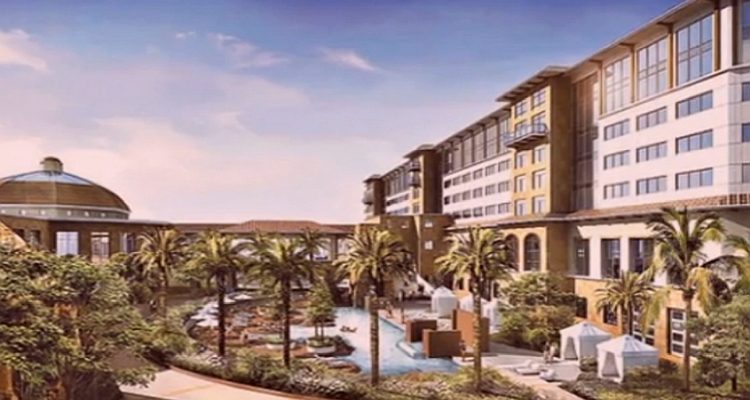The U.S. Department of Interior gave final approval to changes in the Tohono O’odham Nation’s gaming compact with the state of Arizona last week clearing the way for Las Vegas style gambling at their West Valley Desert Diamond Casino in the Phoenix suburb of Glendale. The administrative action marks the end of years of conflict and legal wrangling.
The day after the compact was approved the tribe dropped its lawsuit against the state which sought to force Arizona to let them proceed with plans to offer true random number generator slot machines and certain table games like blackjack and roulette already allowed at other casinos in the state. The Glendale casino currently offers over 1,000 Class II “slot machines” that are actually electronic bingo games that do not need state approval.
A spokesman for the tribe told the Arizona Capitol Times that the new machines will not likely come into operation before 2019, when they can be placed in new area of the casino being built as part of a $400 million expansion of the facility that first opened on December 20, 2015, amid legal battles with the Arizona Department of Gaming and Gov. Doug Ducey. Competing tribes in the region have also expressed opposition to the casino with lobbying efforts reaching Washington D.C.
According to historical records and earlier reporting, the odyssey began in the mid-1980s when Congress awarded the tribe $30 million to compensate them for their part of some 10,000 acres of tribal land inundated by floodwaters with the creation of a federal dam. As part of that agreement, the tribe was allowed to purchase land in Maricopa, Pinal, and Pima counties to replace the land they lost. That land could become part of the tribe’s more than 4,000 sq mi reservation as long as it was not inside existing municipal city limits.
Arizona voters approved a referendum in 2002 giving the state’s tribes exclusive rights to operate casinos in Arizona, and in 2003 the tribe purchased the Glendale property through a holding company. When they petitioned the federal government to include the land in their reservation in 2009 it triggered a series of lawsuits filed by competing tribes, state, and local agencies.
The land was placed into trust, making it part of the Tohono O’odham Nation reservation. As lawsuits wended their way through the legal system the tribe was handed about a dozen court victories while U.S. representatives failed to create new federal legislation specifically barring the casino’s development. The tribe opened their Class II gaming facility in late 2015 and continued their legal battle for self-determination and more lucrative gaming near the state’s largest population center.
The state finally relented earlier this year after embarrassing revelations in 2016 that the state had shared some of the Tohono O’odham Nation’s documents with a competing tribe and state’s attorneys had destroyed documentation related to the meetings where those disclosures took place.
After a failed attempt in late 2016, Gov. Doug Ducey and the tribe agreed to new terms for the Class III compact. Under the new agreement, the tribe is barred from opening any new gaming venues in Maricopa County until 2041 at the earliest.
Expansion plans for the casino include increasing gaming space to 75,000 sq ft, which could eventually double. The facility may eventually hold 50 gaming tables, 25 poker tables, and feature a 1,000 seat bingo hall. Five restaurants are in the works for the current phase of development. The entire facility will eventually cover over a million square feet and include a spa hotel with 600 rooms, a 3-acre atrium, convention and retail space, and other resort amenities.


